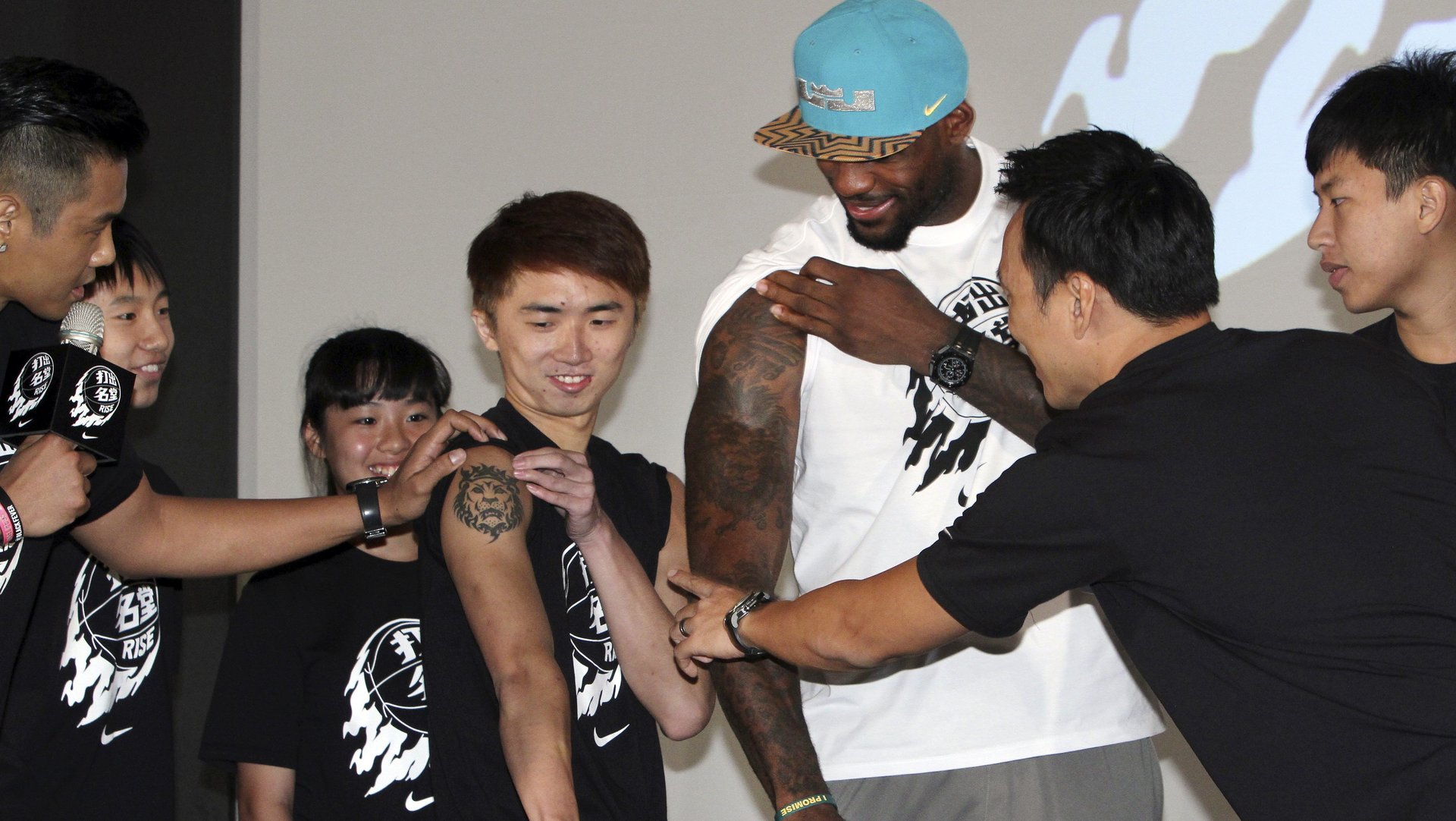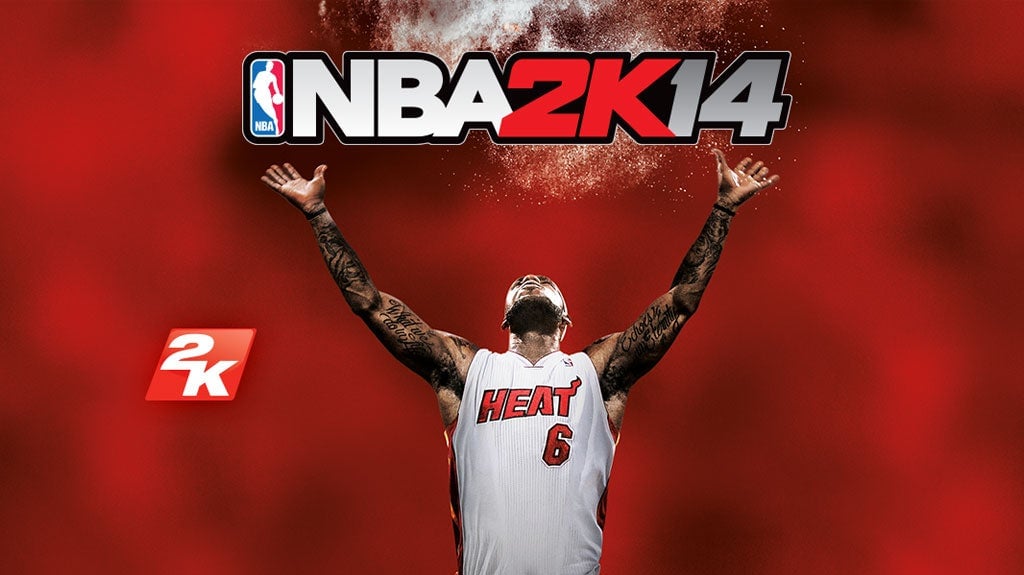Who owns LeBron James’ tattoos?
NBA superstar LeBron James might be surprised to learn that he does not “own” his myriad tattoos. Rather, his tattoos are, arguably, copyrighted material that belong to the original artists who made them—and now those artists want to ensure no one else can profit off the designs that are now permanently inked to LeBron’s biceps.


NBA superstar LeBron James might be surprised to learn that he does not “own” his myriad tattoos. Rather, his tattoos are, arguably, copyrighted material that belong to the original artists who made them—and now those artists want to ensure no one else can profit off the designs that are now permanently inked to LeBron’s biceps.
That’s the subject of a lawsuit filed to New York federal court Monday (Feb. 1). Some tattoos of several NBA players—including those on LeBron—are featured in the popular NBA 2K video game series, distributed by Take-Two Interactive and developed by Visual Concepts. Solid Oak Sketches, a tattoo company, alleges that game makers are violating the copyrights of its artists by including the real-life tattoos in the game without the permission of the artists.
In the lawsuit, representatives for Solid Oak Sketches argue that tattoos, like any other works of art, are subject to copyright laws. The eight tattoos in question include three of LeBron’s, one on Kobe Bryant, and one on DeAndre Jordan.
It might seem silly to say that someone can own the copyright to designs that appear on the flesh of another person—but there’s nothing in current United States copyright law to suggest that tattoos aren’t subject to the same rules as anything else. There isn’t yet a definitive judicial ruling on the issue, as every similar case in the past has been settled out of court before a decision could be made.

Solid Oak’s lawyers had sent Take-Two a letter in July, complaining that the copyrighted designs appeared in various iterations of the 2K series, starting in 2014. The firm offered Take-Two an agreement for the video game maker to pay $819,500 for the use of the tattoos in the 2014 and 2015 editions of the game, or $1.44 million for a perpetual license that would cover 2016 and beyond. Solid Oak alleges that Take-Two ignored its attempt at an amicable resolution. Thus, the lawsuit.
At the heart of the artists’ complaint is that the video game—in a very roundabout, tenuous way—profited off of these tattoos. “The ‘monstrous’ first week sales of NBA 2K16 were accredited to the crisp details and real graphics,” the lawsuit grumbles. Take-Two had, apparently, touted the realism of the players’ tattoos on social media, and some of the tattoos were featured prominently in advertisements for the game.
That said, Solid Oak did not officially file for the copyrights to the tattoos in question until 2015, long after they were inked onto the players’ bodies.
Some lawyers argue that tattooed people have an “implied license” to their own tattoos. Meaning, the artist relinquishes control over how the art can appear to the public as soon as the ink (literally) dries. Even though the work might technically be copyrighted, to restrict an individual from appearing in public places, or profiting off of his or her own body, would be a violation of personal freedom that trumps the alleged infringement.
And say, for instance, LeBron collaborated with the artist on his tattoos. Do they both own the intellectual property? Does LeBron still need permission from the artist to appear in a video game? This area of copyright law is, for the most part, uncharted territory.
Don’t expect this issue to go away. At least one other major American sports league—the National Football League—is well aware of it. In 2013, the NFL Players Association began warning its athletes to obtain a waiver from tattoo artists that would make the tattoos exempt from copyright law and protect the players from potential lawsuits. It’s possible that more leagues begin making similar warnings soon.
If you have a tattoo, don’t worry just yet. For now, this really only affects celebrities, who might stand to benefit—financially or otherwise—from their ink. But on the off-chance you become famous overnight, you might want to reach out to your tattoo artist.